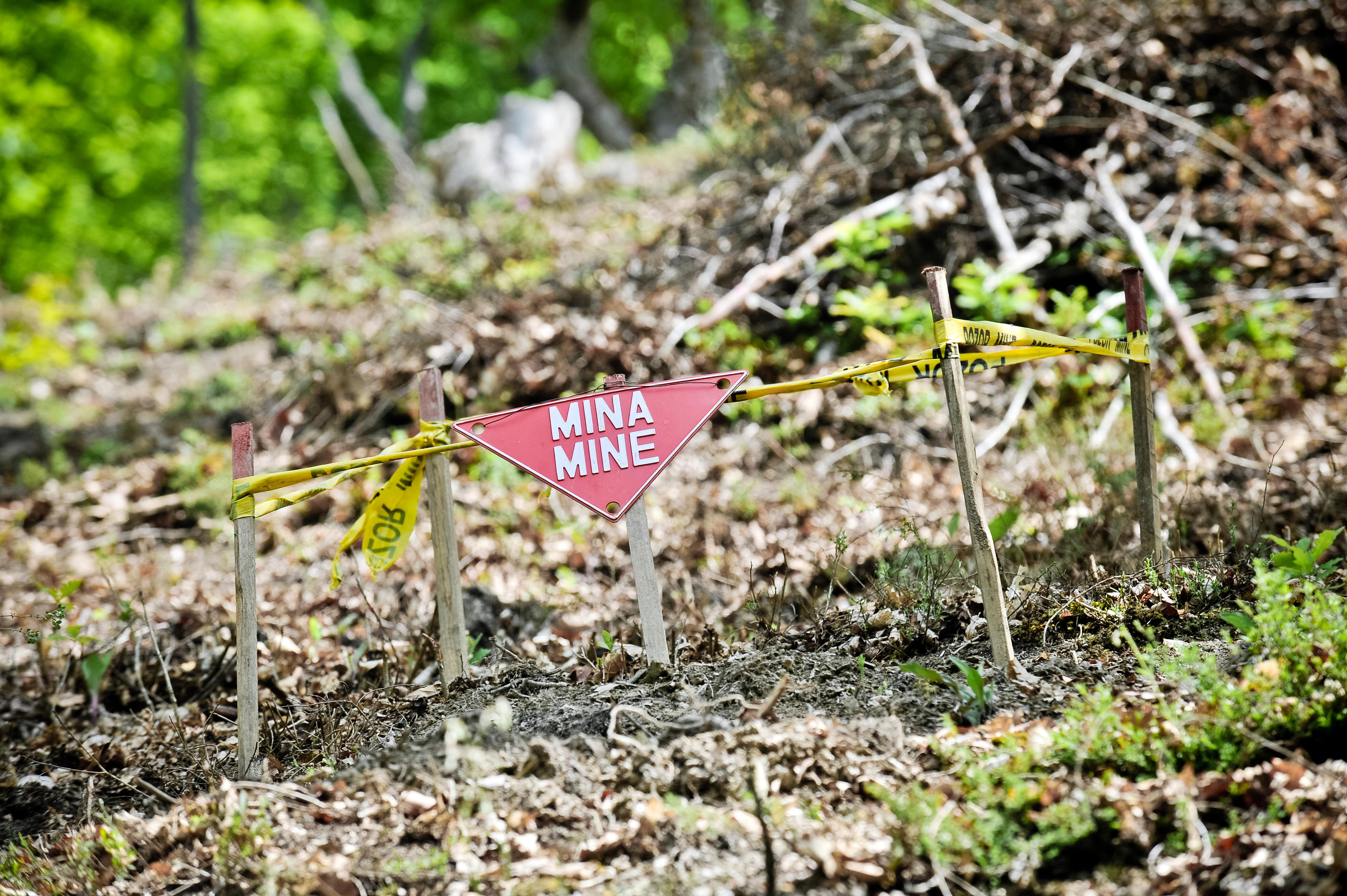A sign warning of a landmine. In Bosnia and Herzegovina, more than 25 years after the end of the civil war, there are still around a thousand square kilometres of minefields.
Copyright© United Nations Development Programme in Europe and CIS, via flickr, CC BY-NC-SA 2.0
Political situation A democratic new beginning in a challenging context
By the end of the war, one third of all housing had been destroyed. The years that followed were therefore dominated by the reconstruction effort. At the same time, Bosnia and Herzegovina underwent a radical process of reform. With support from the international community, the country’s legislation, administration, economy and education system were all restructured.
Complex structure hampers development
The political structure of Bosnia and Herzegovina is extremely complex. The state is made up of two entities – the Bosniak-Croat Federation of Bosnia and Herzegovina and Republika Srpska – plus a third region, the Brčko District. At its head is a three-member presidency, the leadership of which rotates every eight months between representatives of the three ethnic communities.
While Republika Srpska is centrally governed, the Federation of Bosnia and Herzegovina consists of 10 autonomous cantons, each of which has its own parliament and government. The state of Bosnia and Herzegovina and its 3.3 million inhabitants are thus governed by more than a dozen parliaments and their governments, and also a large number of ministries.
The implementation of the Dayton Peace Agreement is facilitated and monitored by the United Nations Office of the High Representative (External link) (OHR) for Bosnia and Herzegovina, which fosters the development of a unified, functional legal system and aims to ensure that government institutions work efficiently and responsibly. It also supports economic and financial reforms.
No state unity
The country’s three major population groups have so far not managed to develop a shared vision for a unified state. This failure impinges on vital aspects of good governance such as accountability, transparency and political participation. Most of the political parties are organised along ethnic lines and mutually obstruct each other on important political issues.
The last general elections took place in 2018, with some of the results still not having been implemented. As a result, the Federation of Bosnia and Herzegovina has thus far failed to form a new government. The last presidential and parliamentary elections took place in autumn 2022.
Efforts to effect the secession of Republika Srpska have intensified since mid-2021. In December 2021, the parliament revoked all transfers of authority and responsibility to the overarching state that had taken place since 1995 and resolved to form its own institutions. This includes the armed forces, the judicial system and the tax system.
As at: 07/06/2022
